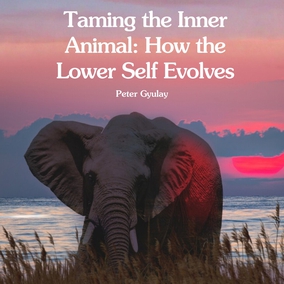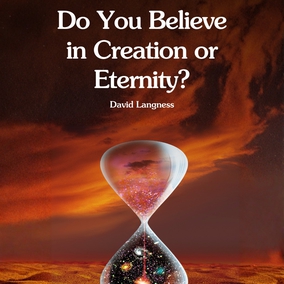The views expressed in our content reflect individual perspectives and do not represent the authoritative views of the Baha'i Faith.
The climate crisis looming over our heads means if the Earth continues to warm, it will make human life on this planet severely difficult, intensifying many of the other problems already in existence.
By that definition, climate change represents an over-arching global issue, one that will affect the future survival of everyone on Earth.
But first, let’s get clear. Humans are powerful, but not supremely powerful. We can destroy our life on this planet and the life of many other species, as we already have, but we cannot destroy the planet itself. Whatever we do to the Earth, it will eventually counterbalance our activities – although we may not be able to flourish or even exist on that hotter planet. So, we need to address the environmental issues for our own survival and most of the other forms of life.
As we know, one of the main causes of the climate crisis, the increased emission of greenhouse gases, can be traced back to one historical event: the industrial revolution. Before industrialization human activities held much less ecological weight. But when we began massively burning fossil fuels to create energy and power our machines, we started a process that exponentially worsened our impact on the world. The more our technologies advanced, the faster this process accelerated, worsening the ultimate effect on the environment. This too was compounded by the fact that there were more and more people on the Earth engaging in these ecologically destructive habits.
But we can trace the root cause even deeper than the industrial revolution – we can indict two fundamental causes of climate change: ignorance and a lack of moral integrity.
Let’s start with ignorance. Some say that “ignorance is bliss.” Well, judging by the situation we’ve got ourselves into, we can instead say that ignorance forms a root factor in climate change because for a long time, most people had no idea what their technological and economic activities were doing to the world. We were so impressed with the new technologies we had created that we just wanted more. These new machines and gadgets made our lives so much easier, which meant no one had any reason to second guess them.
However, already in 1896 the Swedish scientist Svante Arrhenius put forth the notion that the burning of fossil fuels and the carbon released could raise the Earth’s atmospheric temperature. But it wasn’t until the 1980s that scientific consensus began to form around this theory. Today, very few scientists exist who do not believe in human-caused climate change, yet there are politicians, businessmen and laymen who think otherwise, and this leads us to another level of ignorance.
Many of us live in secular societies. Secularism entails the separation of church and state. As Yuval Noah Hariri points out, secularism also involves a focus on truth over blind belief, and truth in the modern age revolves around science. In the Baha’i Faith, science and religion are not seen as dichotomous or separate. The Baha’i teachings say reality is one, and has a material and spiritual dimension expressed respectively by science and religion:
God has endowed man with intelligence and reason whereby he is required to determine the verity of questions and propositions. If religious beliefs and opinions are found contrary to the standards of science they are mere superstitions and imaginations; for the antithesis of knowledge is ignorance, and the child of ignorance is superstition. Unquestionably there must be agreement between true religion and science. If a question be found contrary to reason, faith and belief in it are impossible … – Abdu’l-Baha, The Promulgation of Universal Peace, p. 181.
Many of the people who dismiss climate change have very secular mindsets. Oddly, though, few of these same people would dismiss the advice of their doctor, who has studied medical science. They often trust the projections of economists. They trust the lines on a topographic map. They believe the Earth is round. They certainly wouldn’t ignore an earthquake warning. They have faith in every type of science – except climate science.
These climate skeptics will not usually argue with their doctor, but will use their own rationales to argue against climate science. But they have not really come to their opinion rationally. As Jonathan Haidt and others who support the theory of social intuitionism point out, many of our opinions, even when they seem to be based on logic, are actually based on non-rational intuition. According to this view, we find ways to logically defend our intuition even if we aren’t conscious of it. Often our intuitions, when not guided by divine insight, can be connected to our most base emotions and our ego, which leads to the other fundamental cause of climate change: a lack of moral integrity.
Initially, we could say that the industrial revolution was fueled by human curiosity and creativity. As humans we love to discover and create things. Most scientists and inventors are driven by these two factors. Just look at Albert Einstein and Nikola Tesla, and you will see people driven by an intrinsic need to understand the world. Of course, once the Industrial Revolution got underway, we became obsessed with machines and devices that saved us time and entertained us. Many discovered that they could earn copious amounts of money by producing new and novel things, especially by extracting fossil fuels from the ground, so that process intensified.
Already here, we see that such a drive is not really noble. It’s not sinister in its intent, but does not focus on the purpose of life, either. The Baha’i teachings definitely encourage material progress, and the advancement of civilization is an important Baha’i aim – but they also recognize that material progress must be balanced by spiritual advancement:
Consequently, when thou lookest at the orderly pattern of kingdoms, cities and villages, with the attractiveness of their adornments, the freshness of their natural resources, the refinement of their appliances, the ease of their means of travel, the extent of knowledge available about the world of nature, the great inventions, the colossal enterprises, the noble discoveries and scientific researches, thou wouldst conclude that civilization conduceth to the happiness and the progress of the human world. Yet shouldst thou turn thine eye to the discovery of destructive and infernal machines, to the development of forces of demolition and the invention of fiery implements, which uproot the tree of life, it would become evident and manifest unto thee that civilization is conjoined with barbarism. Progress and barbarism go hand in hand, unless material civilization be confirmed by Divine Guidance, by the revelations of the All-Merciful and by godly virtues, and be reinforced by spiritual conduct, by the ideals of the Kingdom and by the outpourings of the Realm of Might. – Abdu’l-Baha, Selections from the Writings of Abdu’l-Baha, p. 284.
In other words, the aim of progress is not simply wealth and comfort; it is excellence, nobility and spiritual growth.
Today, the economic activities of those who exploit others and the persistence of ecologically destructive activities make this society’s lack of moral integrity most obvious. Long after the world became aware of its ecologically destructive activities, people carried on with the same practices. Even today, governments and ordinary citizens continue to do so. Governments could create laws around clean energy, reduced plastic use and composting, but many have not, solely because of the money made by those polluting industries. These laws would mean that many destructive activities would be eliminated. We can’t throw plastic wrappers into the oceans if things are not sold in plastic.
But ordinary citizens also have their role to play at the grassroots level. We know that our cars churn out carbon dioxide, but we continue to drive them instead of switching to an electric car, taking public transport, walking or riding a bicycle. Often we just choose to live in denial. We can’t face the immensity of the problem, so we simply ignore it. But this too is a form of moral laxity. It is irresponsible and apathetic.
So, what then is the way forward?
Each one of us has to realize the practical necessity of minimizing our impact on the environment and changing our way of life. This fast-paced life, dominated by technology and consumerism, causes both our own unhappiness and the destruction of the planet. Often this fast-paced life prevents us from seeing the needs of the age because we are just too busy to care. But to live a noble life in this day and age is to live an ecologically friendly one. That might mean making sacrifices in terms of our comfort, our financial status and our material well-being. But practically speaking, that’s what needs to be done – and that is also simply the right thing to do for humanity and our planet.
Apart from the practical effect of ecologically friendly actions, they also have a moral and spiritual dimension. From an ethical point of view, living green is virtuous. By making certain sacrifices we enact kindness, respect and love, which are all attributes of God. From another point of view, green living is simply a moral imperative. The philosopher Kant held the ethical view that an action is morally right, not because of the outcome of that action, but by the intrinsic goodness of the intent. From this perspective, even if we feel like our little efforts at saving the planet have very little effect, at least we are doing the right thing. We can go to sleep at night with a clean conscience. To live a noble life, a spiritual life, is to live with moral integrity.
Of course, as mentioned, governments need to do more – much more. They need to create laws that put the environment first. With our myopic eyes, this can seem like ignoring the needs of people. A carbon tax may make us poorer in the present, for example. But if we extend our gaze into the future, we can see that these kinds of responsible measures will benefit future generations. We care about our children’s and grandchildren’s well-being, so naturally we have to take precautions now so they don’t have to live in a barely-habitable world.
Finally, what all this points to is the need for world unity. Laws need to be international, upheld by all. Many countries need economic assistance to be able to institute greener policies. But overall, there needs to be a change in consciousness, that we are one people living on one planet with one chance to get things right.
















Comments
Sign in or create an account
Continue with Googleor